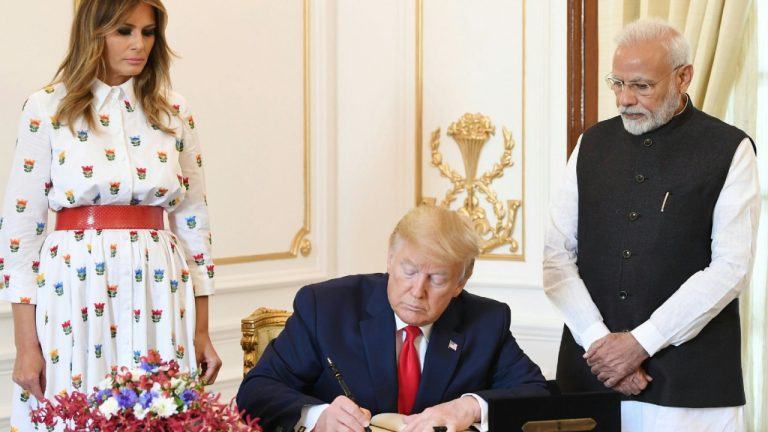
In a recent escalation of trade tensions, the Trump Administration issued an executive order imposing a 50% tariff on India as a retaliatory measure for the country's ongoing purchases of Russian oil. This move comes amidst a backdrop of strained relations between the United States and India over various trade issues. Additionally, Brazil has also been targeted with similar tariffs by the Trump Administration.
The decision to raise tariffs on India is seen as a significant escalation in the ongoing trade disputes between the two countries. India's continued purchases of Russian oil have been a point of contention for the United States, which has been urging its allies to reduce their reliance on Russian energy sources. The Trump Administration's move to impose a 50% tariff on Indian imports is a clear signal of its displeasure with India's actions.
In response to the tariffs, Brazil's President Luiz Inácio Lula da Silva has vowed to coordinate a joint response from the BRICS bloc, which consists of Brazil, Russia, India, China, and South Africa. Lula has expressed solidarity with India in the face of the tariffs and has called for a united front among the BRICS nations to push back against what he sees as unfair trade practices by the United States.
The imposition of tariffs on India and Brazil is part of a broader pattern of trade disputes between the United States and its trading partners. The Trump Administration has pursued a policy of protectionism, imposing tariffs on a wide range of imports in an effort to protect American industries. However, these tariffs have often sparked retaliatory measures from other countries, leading to a cycle of escalating trade tensions.
The decision to target India and Brazil with tariffs is likely to have significant economic implications for both countries. The higher tariffs will make imported goods more expensive for consumers in India and Brazil, potentially leading to higher prices and reduced consumer spending. In addition, the tariffs could also have a negative impact on businesses in both countries that rely on imports for their operations.
Overall, the decision to raise tariffs on India and Brazil represents a significant escalation in the ongoing trade disputes between the United States and its trading partners. The move is likely to further strain relations between the countries involved and could have far-reaching economic consequences. As the situation continues to unfold, it remains to be seen how India, Brazil, and other affected countries will respond to these latest developments in the global trade landscape.

Leave a Reply